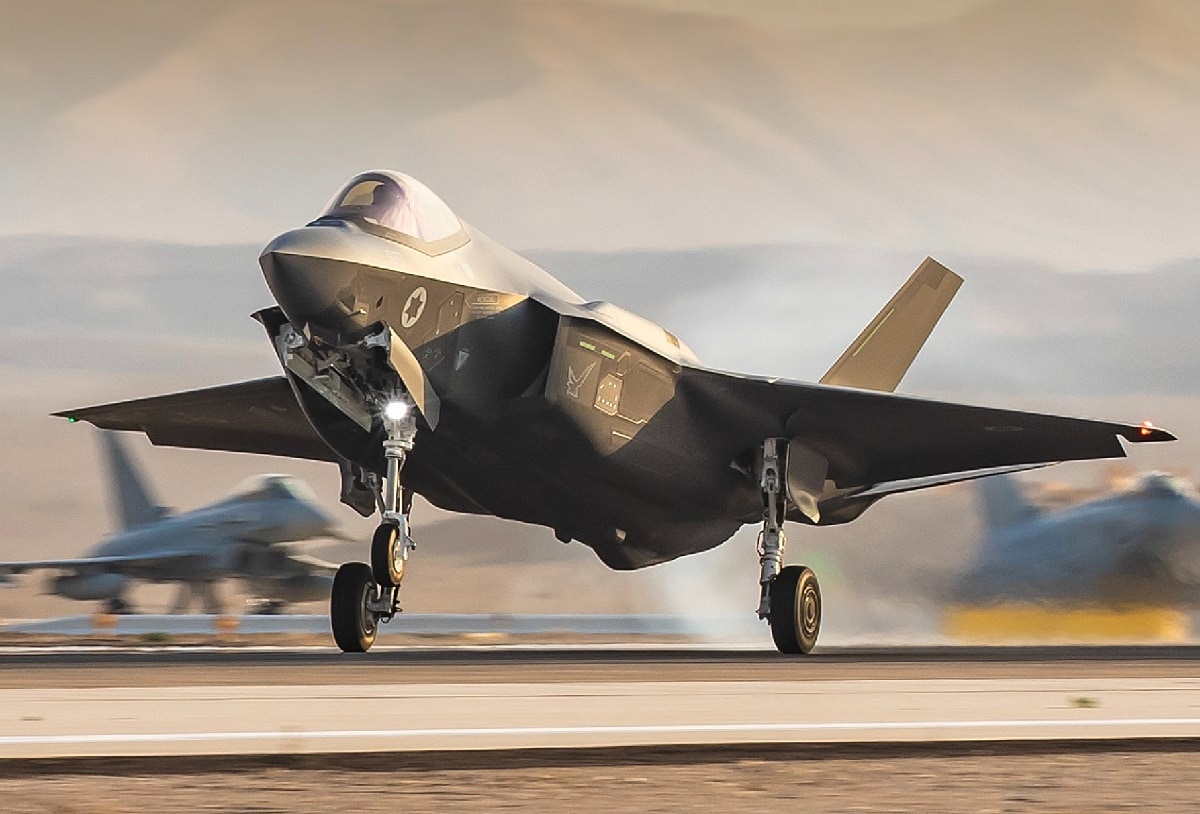Experts and officials around the world continue to closely monitor the situation as the Israel Defense Forces prepare to invade the Gaza Strip. Actors across the region, including Iran, have articulated conditions under which they would intervene in the conflict.
But how likely is Iran to actually take action? And how would Israel respond? It is one of the world’s worst-kept secrets that Israel possesses nuclear weapons, and the question is whether they would ever consider using them.
A Situation Overview
On Oct. 7, under cover from rockets and drone attacks on monitoring posts, Hamas terrorists crossed the border from the Gaza Strip into Israel using powered hang gliders, motorcycles, bulldozers, and trucks. Once there, they embarked on a campaign of violence and depravity, killing indiscriminately — including women, children, and the elderly — and taking multiple hostages. Israel immediately responded with air strikes in Gaza, but it took two full days for them to declare the country fully pacified. The reasons for the slow response are still being debated and will doubtless be a topic of intense scrutiny by IDF and Israeli leadership.
In the week following the initial attack, the two sides traded rocket and airstrikes as Israel summoned 300,000 reservists to active duty. The intent of the call-up was clear — a ground invasion of the Gaza Strip to recover the hostages and stamp out Hamas. Currently, both sides appear to be biding their time before the IDF’s seemingly inevitable invasion. Many believed the invasion was to begin on Friday or Saturday, based on Israeli deadlines for Palestinian evacuation and on some of Israeli Prime Minister Benjamin Netanyahu’s comments. Some have speculated that the IDF is ensuring they can fend off Hezbollah to the north when their invasion begins, as that group has threatened to join hostilities should Israel commit to a ground offensive.
Just as Hezbollah has clearly stated the conditions that will trigger their involvement, Iran has laid out explicit threats.
Iran’s Red Line
In the aftermath of Hamas’ surprise attack, the U.S. and Israel both claimed to see no direct evidence of Iranian involvement. Given Iran’s ambitions and its history of weapons transfers to the terrorist group, this seems highly unlikely. The statements may have been made to try to head off escalations with the Islamic Republic. That appears not to have worked. On Oct. 9, an Iranian official warned of a “devastating response” should Israel attack Iran.
Israeli strikes in Iran are not without precedent. In the last decade, Israel has been accused of carrying out drone strikes, cyberattacks, and assassinations in Iran. While they have never carried out a direct air strike such as the 1981 attack in Iraq that destroyed a nuclear reactor, they have targeted Iranian proxies in Syria many times during the Syrian Civil War. It is these proxies that represent Iran’s greatest threat to Israel.
Iranian Proxies
Over the past several decades, Iran has cultivated its influence in the Middle East by funding and empowering militant Islamic groups throughout the region. In Iraq, Syria, Lebanon, Yemen, and the Gaza Strip, Iran has provided aid to groups such as the Badr Organization, Hezbollah, Hamas, and the Houthis. These groups have carried out insurgencies and rebellions. Hezbollah has gained enough legitimacy to become part of the Lebanese government.
These groups have the means and reach to strike Israel, while providing Iran just enough plausible deniability to avoid major reprisals.
Many of the groups have issued red lines of their own, weaving an increasingly complex web of threats. At the most extreme, Hezbollah has stated its intention to directly attack Israel should it invade Gaza. Groups in Iraq and Syria have threatened to attack U.S. personnel and facilities in the region if the U.S. becomes involved in the conflict. The deployment of two American aircraft carriers to the region increases the likelihood of this outcome, particularly as it appears the ships are there to deter Hezbollah.
The situation remains incredibly complex and murky. Each group has competing interests and a different relationship with Iran, and Israel and the U.S. will have to balance their security goals with the perceived ability of each group to make good on its threats.
Israel’s Nuclear Option
Israel does have one major advantage in these games of brinkmanship — nuclear weapons.
While the nation of Israel has never officially confirmed that it has nuclear weapons, it is all but universally recognized that Israel is a nuclear power with approximately 90 warheads, and enough plutonium for 100 or so more. Since the 1960s, these have served as a major deterrent against Israel’s adversaries, particularly during the 1973 Yom Kippur War.
Under the Jewish state’s Begin Doctrine, the Israeli government is tasked to eliminate all existential threats to Israel. Obviously, if Iran came to possess weapons of mass destruction, this would warrant a response by the IDF to take out those capabilities.
Maya Carlin, a Senior Editor for 19FortyFive, is an analyst with the Center for Security Policy and a former Anna Sobol Levy Fellow at IDC Herzliya in Israel. She has by-lines in many publications, including The National Interest, Jerusalem Post, and Times of Israel. You can follow her on Twitter: @MayaCarlin.

